Rigoletto is not like any other character in all of opera.
He is villainous – no question about that. But unlike obvious villains like Scarpia or Iago or more subtle villains such as Pinkerton or Germont, whose villainy destroys other people, Rigoletto’s destroys only himself. And so, no matter how much his fate is poetic justice, I don’t hate him at all; I pity him.

Since he is such a complex character and evokes complex emotions in us, it is not surprising that different singers give such different interpretations of him. But I can’t recall anyone else who captured him so well as a human being as does Plé¡cido Domingo. In the third role of his new career as a baritone, Domingo has achieved a true masterpiece.

Let me quote extensively from his own remarks in the printed program:
“This is the first opera that I heard; the character of Borsa is the first role that I sang; and then I climbed a step higher and became the Duke – and I have even conducted the opera many times. Being able to take the part of Rigoletto in this ‘live film,’ precisely ‘in the settings’ that Verdi chose and worked so stubbornly to bring off, resisting the censors, will be a privilege that I want to share with those viewers all over the world who will be watching this…event.”
Domingo doesn’t just “take the part of Rigoletto”, he becomes Rigoletto. In his voice, in his face, in his walk, you see and hear every aspect of this tortured soul. Mean and nasty in court in Act I, then tender in the scene with his daughter Gilda. But even here he becomes cold and hard at the mere thought that any other man should even see his daughter. And so on through the reunion with Gilda after her violation by the Duke, his plans to avenge his honor, and his ultimate anguish when those plans go so awry. I was there – in fact I was there twice, Sunday May 8, 2011 and again Wednesday – and I shared every one of his moods both times.
But Domingo is only one of the many people who made this movie so great. I don’t know how old soprano Julia Novikova is in real life, but in Act I of Rigoletto her Gilda is younger and infinitely more naé¯ve than my 17-year old granddaughter. Just to look at her loving, innocent, adoring face as she gazed at her father was to bring back idealized memories of my own daughters – but I don’t think either of them looked at me that way after their fourth birthdays. And when she opened her lovely mouth and sang with her father! Bliss. Heavenly bliss.
Tenor Vittorio Grigolo completes the unusual triangle as the Duke of Mantua. The Duke is not a nice man, but he is not evil. He does not wish harm on his fellow human beings; he just doesn’t agree that they are fellow human beings. They are just puppets – particularly the females – placed in the world for his enjoyment. He freely admits that his span of attention is rarely longer than a day. And with it all he is so gallant, so charming, so sincere (if you can fake sincerity, you‘ve got it made). As if all that charm weren’t enough, he has a gorgeous singing voice.
There isn’t much to laugh at in Rigoletto, but there are two places that brought a smile to my face. Early in Act I when the Duke sings his opening aria Questa o Quella the camera shows one young female face after another gazing at the handsome young brute with desire, adoration, lust, hypnotized fascination. As he nears the finale a horde of them advance upon him just as screaming bobby-soxers advanced on Frankie Sinatra.
Later, in Scene 2, the Duke (disguised as a poor student) and Gilda are standing in an enclosed garden singing beautifully of their love when sounds are heard of the returning Rigoletto. Gilda’s servant Giovanna (Caterina Di Tonno) drags him away down a moderately long path, almost to the door at the end. He breaks away and runs (and I do mean runs) back to sing a couple more addio’s. Giovanna drags him to the door again, he breaks away again . . . The third time this happened I was hard put to keep from laughing aloud.
Verdi’s music, of course, is magnificent, and conductor Zubin Mehta keeps his orchestra in perfect balance with the singers. Not an easy result to achieve considering that Mehta and his orchestra are in an ornate hall and the singers are in various different rooms of the great palace or anywhere else in Mantua. (Did I mention that all the camerawork is in the real town and the real palace – no movie sets here). And whether singing solos, duets, trios, or with the chorus, the voices and the acting are all terrific.
And the excellence doesn’t stop even there. Most of the minor characters also have great voices and are perfectly cast for their roles. Sparafucile (Ruggero Raimondi) has a fine deep voice and looks like what he is – an Italian businessman who deals in death (20 scudi for a nobleman).
His sister Maddalena (Nino Surguladze) is the total opposite of Gilda. No innocent she, but a woman of the streets. She knows precisely what the Duke wants and is quite prepared to sell it to him – until even she falls under his spell and talks Sparafucile into sparing him.
Contessa di Ceprano (Kassandra Dimopoulou) does little singing, but what a face. Her expression is perfectly cool but not in the least cold. Somehow she conveys the impression that, “You and I could have a good time together, Duke, but it will be discreet and it will be on my terms.”
Conte di Monterone (Gianfranco Montresor) pronounces his curse in a wonderfully deep bass voice with face and demeanor to match.
Well, I guess you get the general idea: I liked it! And the good news for you is that (maybe) you can still see it. Unlike the Met HD program, the broadcast times are not fixed for the whole country but are chosen by the individual theatres.
There is a lot of information about the European HD performances on the Emerging Pictures website, but it’s not easy to navigate. Go to emergingpictures.com and enter rigoletto in the search box at the top of the screen. You should get a new screen that shows all theaters in the US that are scheduled to show Rigoletto in the future. Last time I checked there were 13 theaters in 7 different states with dates from June 12 to September 17, 2011. Not much, but you might be lucky – or even plan your summer vacation to include a showing. Do it now, before they sell out. You’ll be glad you did.
The Opera Nut
Photos: Except as noted, all photos are stills from YouTube available on the web
CAMERA 7 CINEMAS
1875 S Bascom Ave
Campbell, CA 95008
408-559-6900
This review by Philip G Hodge appeared in sanfranciscosplash.com on May 18, 2011


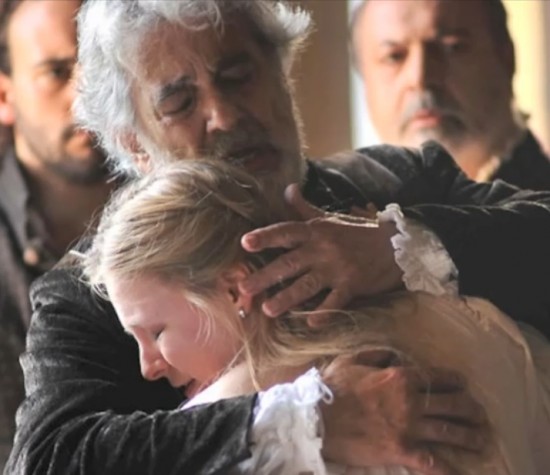
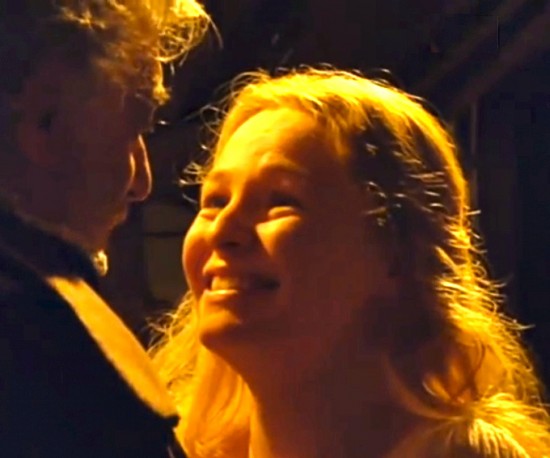
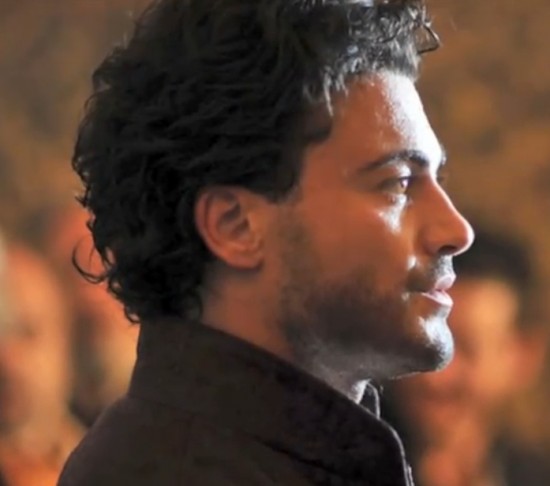
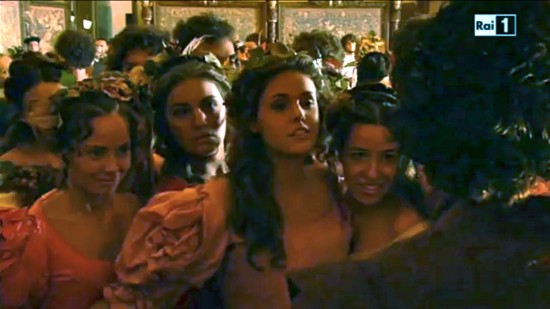
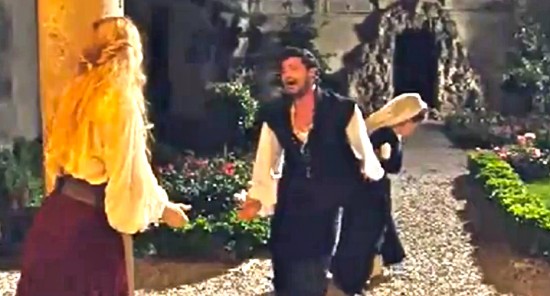

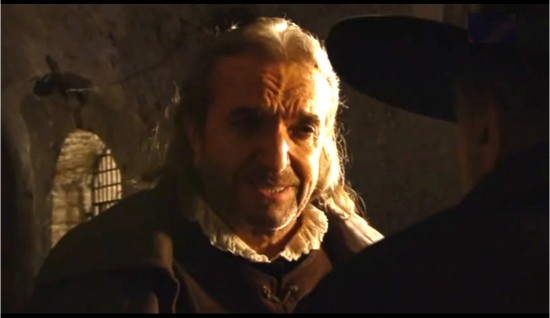

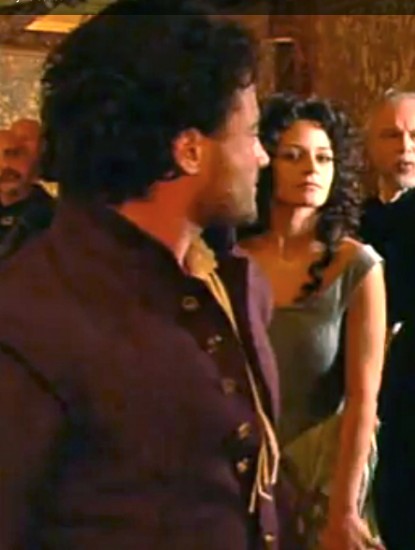

Can I buy a DVD of this?